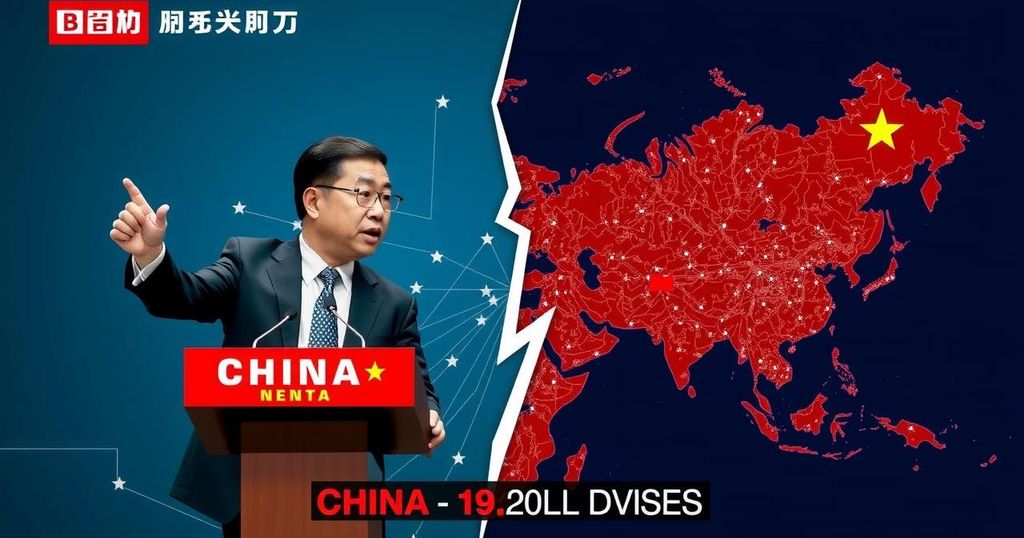Chinese state media has emphasized political divisions in the U.S. as election results approach. Amid reports of potential unrest and societal splits, various outlets portray American democracy as chaotic and dysfunctional. Many Chinese citizens express that U.S. presidential outcomes will not change the adversarial nature of U.S.-China relations, reinforcing the view that tensions will persist irrespective of party leadership.
As America anticipates election outcomes, Chinese state media has seized the moment to highlight perceived divisions within the U.S. political landscape, suggesting that the aftermath of the vote may provoke unrest in what is viewed as its democratic rival. Under the leadership of Xi Jinping, China has increasingly criticized the American political framework, with state communications disparaging U.S. democracy and emphasizing its supposed dysfunction. CCTV’s reporting from Washington emphasized heightened security measures, such as boarded businesses and police presence, while neglecting the many voters peacefully participating in the electoral process. A commentary in the Beijing Daily suggested that the U.S. electoral proceedings could incite social turmoil due to extreme political polarization between the two main parties. Discussion on Chinese social media also reflected a similar perspective, with users humorously suggesting that the divisions in the U.S. warrant a split into two separate countries. Notably, many Chinese citizens interviewed conveyed that the outcome of the U.S. presidential race would be inconsequential to them since tensions between the U.S. and China would persist, regardless of whether Kamala Harris or Donald Trump assumes the presidency. The consensus among Chinese observers appears to be that the U.S. administration will maintain a hardline stance toward China’s ascent, irrespective of the election results. This is seen in light of the actions taken by both the former Trump administration, which imposed tariffs and initiated campaigns against Chinese entities, and the Biden administration, which has also intensified scrutiny on Chinese technological advancements and reinforced support for Taiwan—an issue of paramount importance from China’s perspective.
Chinese state media has long positioned itself to highlight criticisms of the United States, particularly during significant political events such as elections. Observing and reporting on American democracy allows Beijing to contrast its own authoritarian governance structure with the purported chaos of a multi-party system. The increasing tensions in U.S.-China relations, coupled with various trade and security issues, shape the context in which these narratives are presented. As the political climate in the U.S. yields deep partisan divides, China’s media outlets leverage these occurrences to bolster their narrative of stability within their own system while portraying American democracy as faltering. In this environment, the sentiment among many Chinese citizens and leaders is one of skepticism regarding U.S. intentions, reinforcing the notion that any changes in leadership would ultimately uphold a policy of containment towards China, irrespective of party affiliation. This skepticism is rooted in a broader understanding of U.S. foreign policy objectives around China, which have consistently included concerns related to trade, technology, and regional influence in Asia.
In summary, as the U.S. election progresses, Chinese state media has focused on highlighting social and political divisions, framing them as indicative of systemic dysfunction. Reports consistently suggest that unrest is a likely consequence of the electoral outcomes. The prevailing view among Chinese citizens is one of resignation, believing that regardless of the winner, the fraught relationship between the U.S. and China will remain unchanged. The narrative being constructed emphasizes a stark contrast to China’s stability, reinforcing the ideological rift between the two nations.
Original Source: www.cnn.com






